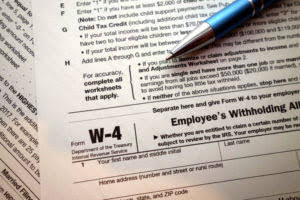
Whether you’re interested in becoming an accountant or a licensed CPA, the first step is getting your bachelor’s degree in accounting. CPA candidates need at least a bachelor’s degree related to finance and accounting to apply for the exam. They need to pass rigorous testing and strict requirements for licensing in the state in which they intend to practice. If you’re a business owner, look for a CPA who has experience working with businesses Airbnb Accounting and Bookkeeping of your size and industry.
Understanding CPAs and Accountants
- Learn about start dates, transferring credits, availability of financial aid, and more by contacting the universities below.
- Nothing included herein should be taken as a guarantee, warranty, prediction or representation about the results of your situation.
- In a nutshell, both accountants and CPAs have valuable roles in the financial health of a business, but CPAs often have more opportunities when it comes to salary and the scope of job opportunities.
- Begin working toward a career in accounting by earning the Bachelor of Science in Accounting with an Emphasis in Public Accounting degree from Grand Canyon University (GCU).
- An accountant manages day-to-day financial transactions, like bookkeeping and basic tax preparation.
- In some states, the requirements include being a United States citizen, a resident of the state, or both in order to take the exam.
Salaries for Public Accountants can vary based on factors such as education, experience, geographic location, and industry specialisation. Entry-level positions may offer lower salaries compared to roles requiring advanced certifications or specialised expertise. Whether you opt for a CPA or an accountant, FreshBooks makes your financial management easier than ever. Try FreshBooks for free now, and see how it can simplify your business finances, fast. Deciding between a CPA and an accountant depends on the type of company you have.
Career Opportunities
CPAs are required to complete at least 150 college credit hours to qualify for a CPA license, compared to the standard 120 credits required to earn a bachelor’s degree. Some accounting professionals take advantage of earning a master’s degree in accounting to earn these additional credits, further advancing their credentials in the eyes of employers. When a field of work is as large and diverse as accounting, it can become difficult to tell the difference between similar positions and job titles. For example, the skills net sales and responsibilities of accountants and certified public accountants (CPAs) sometimes overlap, causing some confusion about the difference between the two.

CPA Exam

To maintain licensure, CPAs must satisfy continuing education requirements and stay up to date on industry changes. To become a Certified Public Accountant (CPA), you need to complete educational requirements, work in the accounting field, and pass the CPA Exam. On the contrary, accountants only need to earn a bachelor’s degree in accounting before starting their career. Simply put, a CPA is likely to have greater accounting knowledge than those without the designation, and to be capable of performing duties that regular accountants cannot. According to the BLS, a bachelor’s degree in accounting or a related field is typically needed to pursue career opportunities as an accountant or auditor. If you have earned a bachelor’s degree in accounting or business, you may be able to pursue career opportunities as an accountant.
- If you’re ready to research accounting programs all you need to do is click the Find Schools button to get started.
- On the other hand, there were 170,607 jobs posted for accountants that only required a bachelor’s degree, not a CPA.
- The CPA certification exam generally is considered difficult, and less than 20% of test-takers pass all four sections the first time they take them.
- A fiduciary is an individual or an organization that has the legal authority to act on behalf of others.
- Accountants are often responsible for evaluating a business’ overall financial operations and providing guidance to help the business make well-informed financial decisions.
- A CPA focuses on tax preparation, accounting, and financial planning, while a tax attorney provides legal counsel, represents clients in disputes, and navigates complex tax laws.
Questions About the CPA Job Description
The “chartered accountant” designation is typically granted to accountants outside of the United States. To become a chartered accountant, individuals need to complete a bachelor’s degree, gain work experience, undergo specialized training, and pass an examination. To become a CPA, an individual must first obtain a bachelor’s degree in accounting or a related field from an accredited university. This rigorous assessment consists of three core sections and one discipline section of the participant’s choosing. CPAs are also required to obtain licensure from their state’s Board of Accountancy and meet other state criteria.
- A CPA is also allowed to perform certain duties that regular accountants are not permitted to do.
- CPAs may have all of those same duties and responsibilities of an accountant, but their extra qualifications mean they are eligible to have additional duties.
- This process involves meeting educational requirements, passing the CPA Exam, and fulfilling any additional experience requirements set by the state.
- By understanding these distinctions and contacting Advantage Accounting and CPA Firm, you can make a more informed decision and ensure your financial affairs are managed effectively and efficiently.
- Additionally, they are able to provide more advanced taxation and auditing services than unlicensed accountants.
- The term “fiduciary responsibility” refers to the legal rights of a person or organization to act on behalf of another person, client, or company.
CPAs must also abide by a code of ethics and professional standards as required by the American Institute of Certified Public Accountants (AICPA). Simply put, a CPA has more education, certification, and legal authority than a general accountant. If you need basic financial help like bookkeeping or tax prep, an accountant can do the job. But for more complex tasks like auditing or representing you in front of the IRS, a CPA is your go-to expert. However, for more complex situations like auditing, tax strategy, or representing you in front of the IRS, you’ll want to hire one of our certified CPAs.
- For day-to-day financial tasks like bookkeeping or tax preparation, an accountant might be sufficient.
- Caitlynn Eldridge, founder and CEO at Eldridge CPA, explains that CPAs have completed specific requirements to earn the designation.
- In short, when you’re facing big financial challenges, having a CPA on your side can make all the difference.
- Entry-level positions may offer lower salaries compared to roles requiring advanced certifications or specialised expertise.
- Careers in accounting can be rewarding, and there is increasing demand for accounting professionals.
- Even if you think you may not become a CPA or you aren’t sure about your decision yet, it’s a good idea to choose a degree program that will prepare you to sit for the National Certification Exam.
- Accountants and CPAs (Certified Public Accountants) both are essential for business functions, and both roles have an important distinction.

Understanding these differences ensures you receive the appropriate support for your tax-related needs. Optima Tax Relief is the nation’s leading tax resolution firm with over $3 difference between accountant and cpa billion in resolved tax liabilities. To become a tax attorney, individuals must complete a bachelor’s degree, followed by a Juris Doctor (JD) degree from an accredited law school. After passing the state bar exam, some attorneys choose to specialize further by obtaining a Master of Laws (LL.M.) in taxation.


